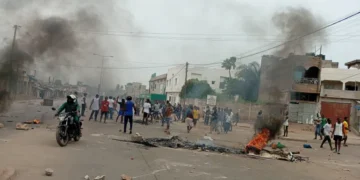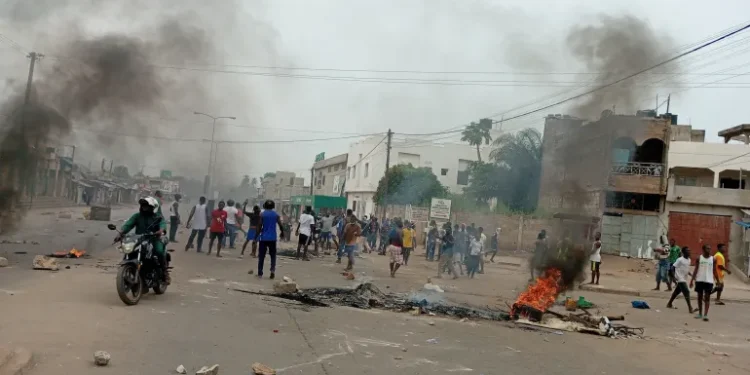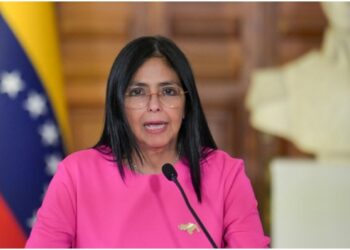By Enyichukwu Enemanna
No fewer than seven persons were killed during a crackdown on protesters calling for Togo’s leader, Faure Gnassingbé, to step down and free all political prisoners currently in detention, civil rights groups have alleged.
Reports have also emerged that dozens more people were injured, many severely.
The development comes weeks after Gnassingbé, who has been in office for two decades and whose family has ruled the West African country for 58 years was sworn into a new post of President of the Council of Ministers, an office without any official term limits.
A coalition of 23 Togolese civil rights groups, known as the “National Platform for Civic Space and Development Effectiveness”, has asked the authorities to carry out investigations into the bloody police repression.
They condemned what they described as “the use of disproportionate force against peaceful demonstrators”, adding that “peaceful protest is a fundamental right, recognised both by the Togolese Constitution and by international instruments ratified by our country”.
The Togolese government has now threatened legal action against the protest organisers, describing the demonstrations as a “campaign of disinformation and hatred” that was orchestrated from abroad.
In 2022, authorities placed a ban on street demonstrations in the country, citing “security reasons”.
The three days of demonstrations, which gathered momentum on social media, were led by activists and youth-backed movements. It began in the capital, Lomé, on Thursday, before taking a violent turn on Friday and Saturday.
Anti-riot police had dispersed crowd of protesters with teargas and water cannon. The demonstrators, in turn, pelted them with stones and other missiles.
Some anti-government protesters engaged security forces in street battles in several areas considered to be opposition strongholds, including Bè, where police chased demonstrators into their hideouts.
Calm, however, returned on Sunday, with social and economic activities resuming in most parts of Lomé.
In addition to the new post, which he can keep for life, constitutional reform in Togo has ended presidential elections and introduced a parliamentary system.
The arrest of Togolese rapper Narcisse Essowè Tchalla, also known as Aamron, last month sparked public outrage, culminating in over 50 more arrests during anti-government demonstrations earlier this month.
Though majority of them have been released, at least three people remain in custody.



































